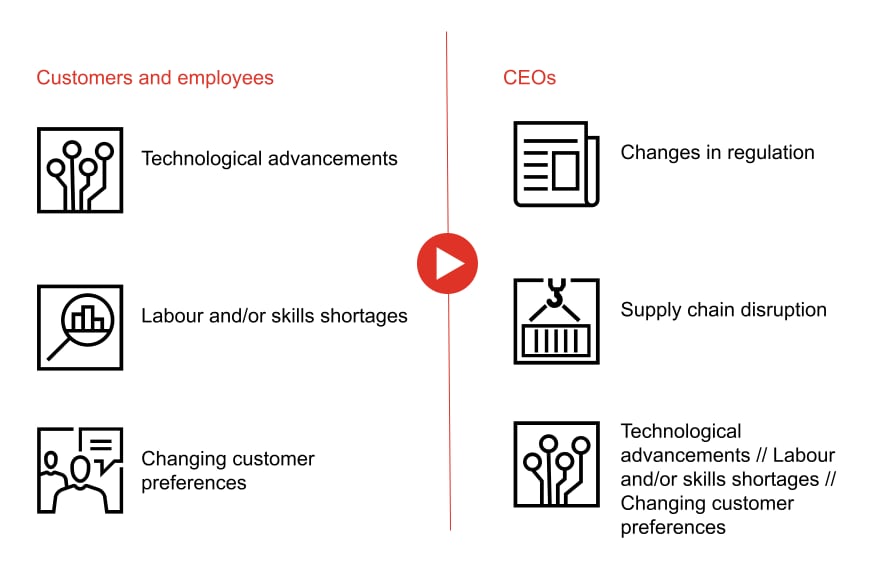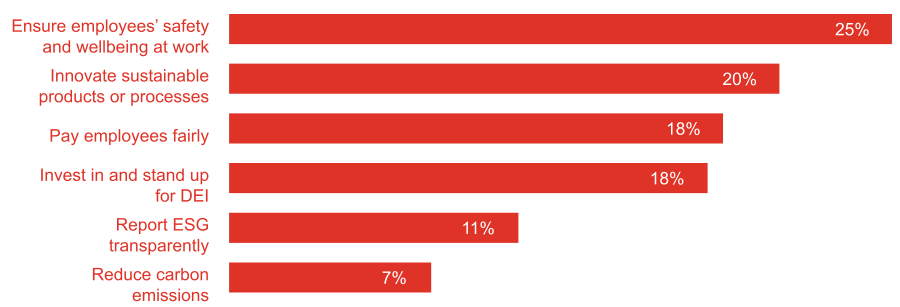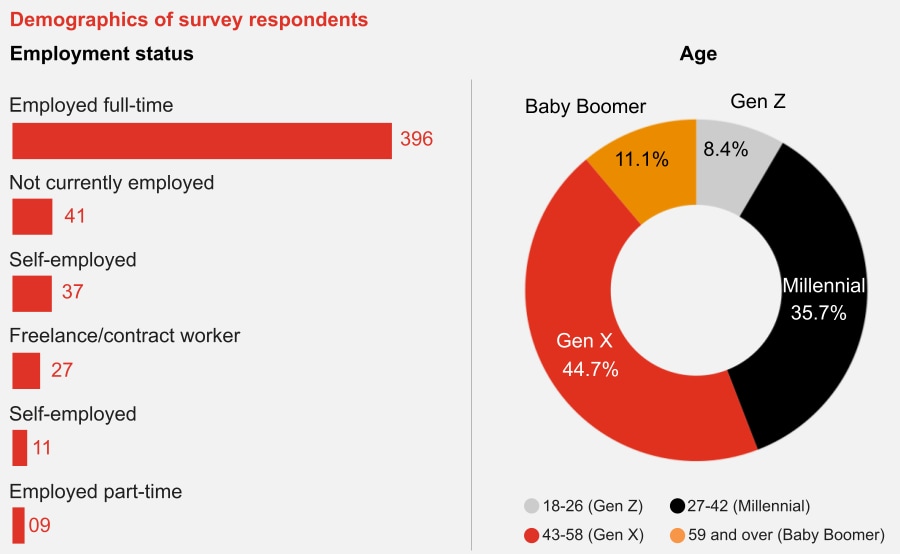
Economic anxiety and prevailing societal challenges have resulted in a decline in overall trust levels in Malaysia’s core institutions including government, business, non-governmental organisations (NGOs) and media, as measured in the 2023 Edelman Trust Barometer. With the level of trust going from 66 points in 2022 to 62 in 2023, Malaysia’s decline was one of the largest among the countries surveyed this year, although business remains one of the most trusted institutions among the four.
Our interactions with Malaysian organisations over the years have revealed one thing that business executives agree on - that trust in business is imperative. Trusted companies perform better, especially during times of crisis, because customers are willing to advocate for them and employees want to go the extra mile for them.
In this publication, we explore if business leaders are aligned with customers and employees on what moves the needle on trust. We see alignment, but we find that the way companies go about achieving trust and what customers and employees expect to see may be slightly different.
Innovate to transform
Our 26th Annual Global CEO Survey finds that one in two (51%) Malaysia CEOs believe their companies are only economically viable for 10 years or less on their current path, highlighting the need to reinvent and transform. However, the priorities of CEOs and customers and employees tend to diverge.

Customers and employees - Q: What major events do you think will impact companies’ survival in the next decade?
Source: PwC Malaysia's survey conducted between 27 March - 19 April 2023
CEOs - Q: To what extent do you believe the following will impact (i.e., either increase or decrease) profitability in your industry over the next ten years?
Source: 26th Annual Global CEO Survey - Malaysia
It’s likely that recent changes in regulations around employment and sustainability, were more top of mind for CEOs during the 26th Annual Global CEO Survey period in October and November 2022. However, the impact of labour and/or skills shortages and changing customer preferences ranked within the top three selections of both groups when asked about the major events they foresee will impact company’s survival in the next decade.
If you’re only working towards meeting regulation, you’ll end up behind the technology curve and at the same time, you won’t be able to attract the talent pool you need. That’s very important for businesses that want to grow.
Building a competitive workforce
Although layoffs are taking place in the technology industry in the United States and Europe, labour and skills shortage remain a concern in key industries such as palm oil, construction, services and manufacturing in Malaysia. Retention is likely to contribute to the labour and skills shortage issue as 37% of Malaysia CEOs also think attrition rates are likely to remain unchanged in the next 12 months.
Top 3 factors for switching employers
28% Lack of opportunities for advancement
22% To look for a better pay package
21% Lack of job fulfillment
Source: PwC Malaysia's survey conducted between 27 March - 19 April 2023
However, employers appear to be making the right kind of investments in plugging the labour and/or skills gap that allow them to redistribute work and free up their people’s time to do work of greater value. 71% of Malaysians believe that their employers are upskilling current employees to plug the skills and/or labour shortage.
In plugging the skills gap, both employers and employees need to know why they’re upskilling. Employers should align upskilling with the company’s direction of growth and at the same time, see the value of making mistakes, within reason, to encourage a culture of innovation.
To be able to innovate, we need to also have a culture that does not penalise mistakes. In fact we tolerate, or even celebrate, mistakes, because we learn one more way of how not to do something.
86% of CEOs plan to make investments in upskilling the company's workforce over the next 12 months, and 60% of this investment is geared towards reinventing the business for the future as opposed to preserving the current business.
Sustainability matters
Sustainability remains a critical trust driver for companies and its stakeholders as regulators and investors continue to ask companies about their environmental, social and governance (ESG) efforts and credentials.
However, Malaysians are not likely to consider ESG reporting and how companies are managing their carbon emissions as a key driver of trust. Instead, they’re paying closer attention to behaviours that directly impact their lives – how companies treat their employees, deliver sustainable products (including a sustainable supply chain) and do good for the communities they operate in.
While customers and employees prioritise the social aspects of sustainability, business leaders see sustainability as a license to operate, although this remains a middle priority. Based on the 26th Annual Global CEO Survey, CEOs ranked climate change fourth after inflation, macroeconomic volatility and geopolitical risk. Yet, around half of CEOs say they are in progress or have completed actions to mitigate the risk of climate change.

Q: What do companies do that earn your trust in their sustainability commitments? (select top 3)
Source: PwC Malaysia's survey conducted between 27 March - 19 April 2023
For the average small business, adopting sustainability is not an easy task to undertake. So the onus is on corporate leaders, corporate organisations like ourselves, to figure out how we help businesses and individuals and make it easier for them to prioritise sustainability.
Key takeaways

Take ownership of trust by measuring it
Embed trust drivers in your metrics for success, by establishing different ways to engage stakeholders through employee engagement surveys, social media platforms or the company website where customers interact most with companies.

Stay agile, but consistent, in times of change
During times of transformation, the trust you’ve built with employees empowers them to take action that moves projects forward. Your role, as leaders, is to be clear about the outcome you want to achieve, set realistic expectations on timelines and costs, and be consistent in your messages around the transformative effort.

Personalise your trust story for each stakeholder
Certain aspects of issues, like sustainability, will matter more to one group of stakeholders compared to others. You won’t be all things to everyone, but what matters is being able to understand what’s important to them and customise your message accordingly.
About the report
Our thought leadership publication is based on results obtained from members of the public through a poll distributed on social media between 27 March - 19 April 2023. A total of 521 responses were received.

Business leaders’ perspectives were obtained through interviews with 7 business leaders conducted between April and May 2023, supplemented by secondary research.
We heard from:
Alina Amir, CEO and Co-founder, Arus Academy
Dato' Abdul Rahman Ahmad, Group CEO, CIMB Group Holdings Berhad
Joe Sim, Group Chief Operating Officer, IHH Healthcare
Kamarul A Muhamed, Founder and Group CEO, Aerodyne Group
Lim Cheong Guan, Managing Director, Top Glove Corporation Berhad
Lim Chern Yuan, Group CEO, Yinson Holdings Berhad
Loi Tuan Ee, Managing Director, Farm Fresh Berhad
Contact us



Building Trust Programme Sponsor & Assurance Partner, PwC Malaysia
Tel: +60 (3) 2173 0946










